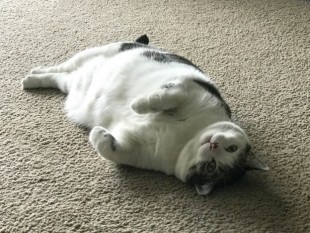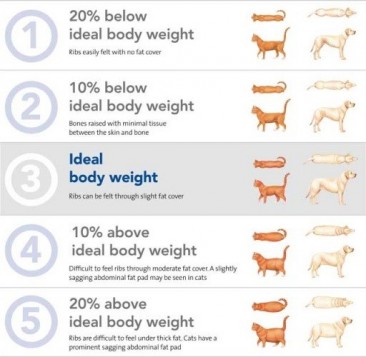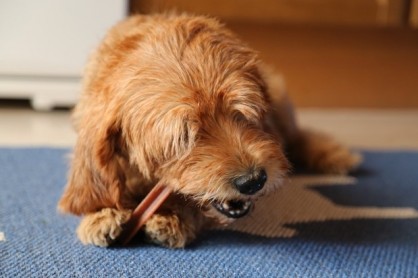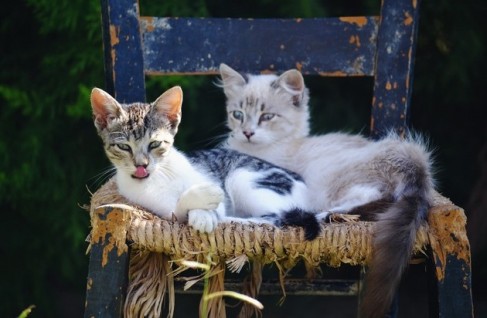


As owners, we are responsible to ensure we feed our beloved pets as best we can to ensure they live the happiest healthiest life they can. When it comes to food, most of us are guilty of giving our pets too much love! It's hard to resist those pleading eyes or that persistent meow. However, feeding the treats that they love can sometimes be doing a lot more harm than good. Current literature is showing that >40% of dogs and >30% of cats are overweight.

Did you know that feeding a 10kg dog one small plain biscuit or one slice of buttered toast is the same as you having one hamburger? Or that one cup of milk for a cat equates to 3 hamburgers and they cannot digest the lactose in the milk? As you can see dogs and cats require a balanced nutritional diet and it is usually a lot less than you think.
Obesity predisposes your pet to many health conditions including; diabetes mellitus, heart disease, arthritic pain, respiratory issues. Therefore, having a good grasp on if your pet is a healthy weight and actively ensuring they stay this way is so important.

Each pet’s ideal weight is different. Weight ranges come in handy but each pet is individual and this can vary. The best way to tell if your pet is the right weight is something called the Body Condition Score (BCS)
All pets should have a visible waistline. The ideal BCS is 3 as detailed on the Hill’s Pet Nutrition poster. At home try and use the BCS system at least once every 3 months to ensure that your pet’s weight is not changing rapidly. Then at your next vet visit check to see if your score, is consistent with your vet’s.

An increase in exercise is a good idea but this is only a small portion of your pet’s weight management. As the saying goes abs are made in the kitchen, diet is the key to helping your pet return to a healthy weight. In conjunction with your vet’s recommendation, a small reduction in food on offer may be required. There are also specific diets to help them feel fuller and increase their metabolic rate.
If you have any queries regarding your pet's weight, then come in for a Weight Check. Use the scales in the reception, our trained nurses can give you advice on your pet’s weight. We will record the weight and suggest feeding amounts dependent upon what you are currently feeding. Then at your leisure, you can come in regularly and monitor the weight over time. Remember that it is always easier to control weight by accurately measuring what you feed and keeping the amount consistent.
Keep in mind that rapid unwanted weight loss is a problem if this is occurring to your pet please see a vet as soon as possible.